•By Jaye Gaskia.
Introduction.
The 2023 general elections in Nigeria, have now, for all intents and purposes been concluded, and in this sense, it can be said conclusively that the elections have been won and lost.
This intervention is not primarily concerned with engaging with the self-serving and mutually exclusive claims and counter claims about the integrity of the outcome, by contending ruling class parties.
This intervention is more concerned with the engagement of the left and the labour movements with the election. It is important, for the avoidance of doubt, to restate our position about the claims around so-called massive fraud and irregularities in the elections, right here and now.To the extent that elections are rigged and manipulated in Nigeria, every party, and every political actor is complicit. A political party, and a political actor can rig and or manipulate the electoral process only within their specific strongholds and or spheres of influence, including through leveraging Institutional Support of aspects of the state within their control, and or within their sphere of influence.
It is important, for the avoidance of doubt, to restate our position about the claims around so-called massive fraud and irregularities in the elections, right here and now.To the extent that elections are rigged and manipulated in Nigeria, every party, and every political actor is complicit. A political party, and a political actor can rig and or manipulate the electoral process only within their specific strongholds and or spheres of influence, including through leveraging Institutional Support of aspects of the state within their control, and or within their sphere of influence.
Furthermore, elections because of their predominantly transactional nature in the country, are won or lost depending on the configuration and alignment of political potentates and their structures of control. The more of these potentates and their structures of layered lieutenants from the ward level upwards, there are aligned behind a political party and or actor, the greater the chances of success of such political party, political alliance, or political actor, in the intricate mechanism of election manipulation, as such the greater the chances of emerging victorious in the said election.
The 2023 election was no different, and its outcome was equally neither different nor unexpected to the critical and conscious mind.
Where We Are Coming From:
In the buildup to the 2023 general elections, from 2021 to 2022, there appeared to be a convergence of interest and coincidence of purpose between the trade unions movement, epitomized by the two central labour federations – the NLC and the TUC, on the one hand, and wider left movement, epitomized by The People’s Alternative Political Movement (TPAP-M), on the other hand, to facilitate and enable workers political participation in general, and workers engagement with the 2023 general elections in particular, through at the very least the instrument of the Labour Party.
This convergence of interest and coincidence of purpose found expression in the declared intention of the labour centers to recover the Labour Party, a party founded by the trade unions, from the usurpers who had taken control of the party as a result of years of neglect by the labour centers; as well as in the declared intention of the left movement, TPAP-M, to encourage a process of the Reclaiming of the labour party by the Nigerian workers.
There’s both similarity and difference between these two declared intentions. The labour party as we have noted was founded essentially as a project of the labour (trade unions) bureaucracy and the wider Labour Aristocracy inclusive of veterans of the labour and left movements. From its foundation there was no concerted and sustained effort to open the party up for workers membership. So, the ‘Recovery’ project of the labour bureaucracy was more or less about recovering control of the labour party by the labour bureaucracy, from the usurpers who had taken control of the party.
So, the ‘Recovery’ project of the labour bureaucracy was more or less about recovering control of the labour party by the labour bureaucracy, from the usurpers who had taken control of the party.
The ‘Reclaiming’ project of the left movement on the other hand was more about enabling workers ownership and control of the party through their individual membership of the party, and their organised active self-agency within the the party. As events have now shown, neither of these objectives was to be realised.
The Trade Unions And The Elections:
As usual, the trade unions, through the instrumentation of the labour aristocracy merely issued directives for workers to join the party, and either did not act in deliberate and intentional ways to facilitate workers mass entry into the party, or actually acted in ways that sabotaged and prevented workers membership and or support for the party.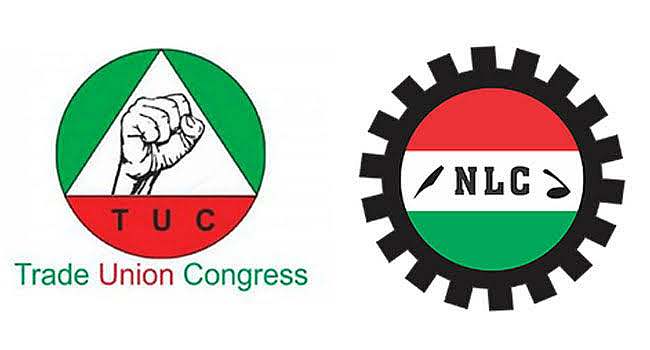 What’s more? They did this while negotiating with and transacting business with the political usurpers and political jobbers in control of the party, and consolidated new alliances with political misfits, outcasts, and refugees who were defecting to the labour party, and picking up labour party candidacies for various elective positions to be contested in the general elections in legislative and executive arms of government, and at federal and state levels.
What’s more? They did this while negotiating with and transacting business with the political usurpers and political jobbers in control of the party, and consolidated new alliances with political misfits, outcasts, and refugees who were defecting to the labour party, and picking up labour party candidacies for various elective positions to be contested in the general elections in legislative and executive arms of government, and at federal and state levels.
The trade unions, that is the trade unions bureaucracy thus became actively, and even proactively complicit in the political bazaar that the party primaries became, as well as in the oiling and running of the transactional machinery that the labour party had become.
We can say, with very high degree of confidence and very high level of accuracy that more than 90% of the candidates field by the labour party in the 2023 general elections, right from the apex presidential candidate downwards, were not members of the labour party until a few days, or even the day of the respective primaries, had never been members of the party, had never engaged with the labour movement, and we’re totally alien to the ideological positioning of the labour party – which is social democracy, or of the wider labour and left movement – which is Socialism.
The labour bureaucracy, abandoned their historical allies, and entered into new historic alliance with this assemblage of assorted refugees who has been outsmarted by their peers in their home parties, and had been forced to seek refuge and solace in the labour party, for a reduced fee.
The trade unions thus did nothing in concrete terms to mobilise workers into the party, or mobilise workers support for the party, nor did they do anything concretely to even actively advance the interests of workers, within this labour party, or within the wider political contestation space.
They were content with negotiating space and position within the transactional machinery and political bazaar process. The Workers Charter of Demands was abandoned and cosigned to the trashcan of history, no sooner than it was launched with fanfare.
The Left And The Election:
So, how did the wider left fare? There was at least what seemed like a broad consensus within the left and the movement to ‘Raise The Banner Of Socialism’ in its engagement with the general elections, within and without, that is from beyond the labour party.
There was agreement within TPAP-M along the line above. More specifically there was agreement that the movement – TPAP-M will stay out of the labour party, given the context of its conversion into a huge refugee camp for defecting politicians outsmarted by their peers in their own parties, and who were merely seeking a platform with which to contest the elections; will stay out of the labour party, and engage with the party and other parties with its socialist program, and its campaign for socialist transformation of Nigeria project.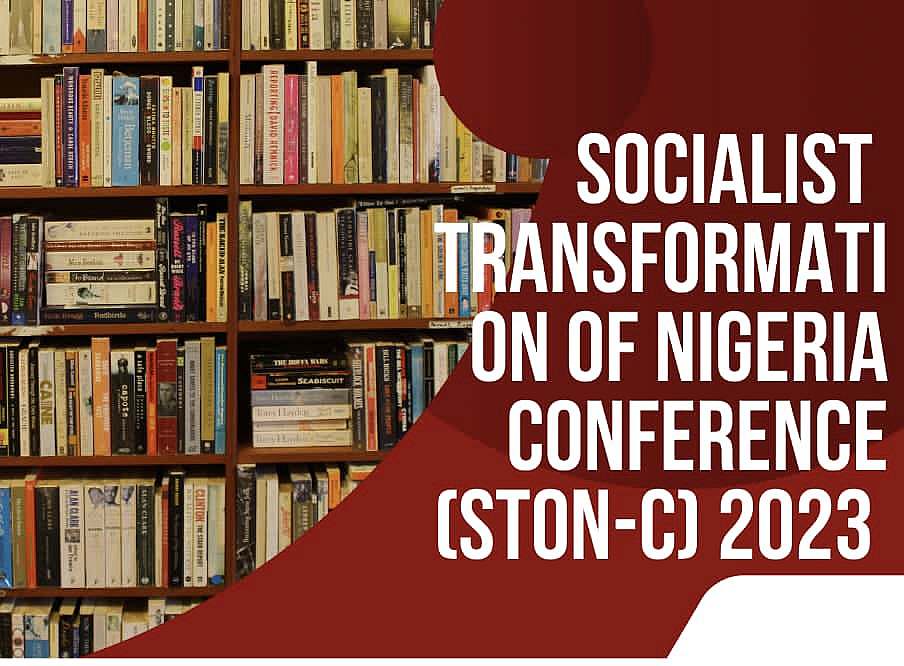 However, individual member organisations of the coalition – TPAP-M could enter the labour party, on the condition that they would actively canvass the socialist alternative, and canvass for the opening up of the party to workers membership.
However, individual member organisations of the coalition – TPAP-M could enter the labour party, on the condition that they would actively canvass the socialist alternative, and canvass for the opening up of the party to workers membership.
In this way, and by this means, the left was to be engaged in its project of raising the banner of socialism in the context of the general elections processes, within and beyond the labour party.
However, almost as soon as the Campaign For Socialist Transformation (CAST) Nigeria was launched, it was abandoned by those who had chosen to work within the labour party, a near parallel of the process of abandonment of the TPAP-M as soon as it was established, by this same formations.
This abandonment of the coalition and its program was always surreptitious, and usually manifests in working away from collective tasks, subordinating the interests of the coalition to the interests of individual member organisations, and promoting the activities of the individual member organisations over and above, and essentially to the exclusion of the interests of the coalition, even while simultaneously calling for and vowing to work for left unity.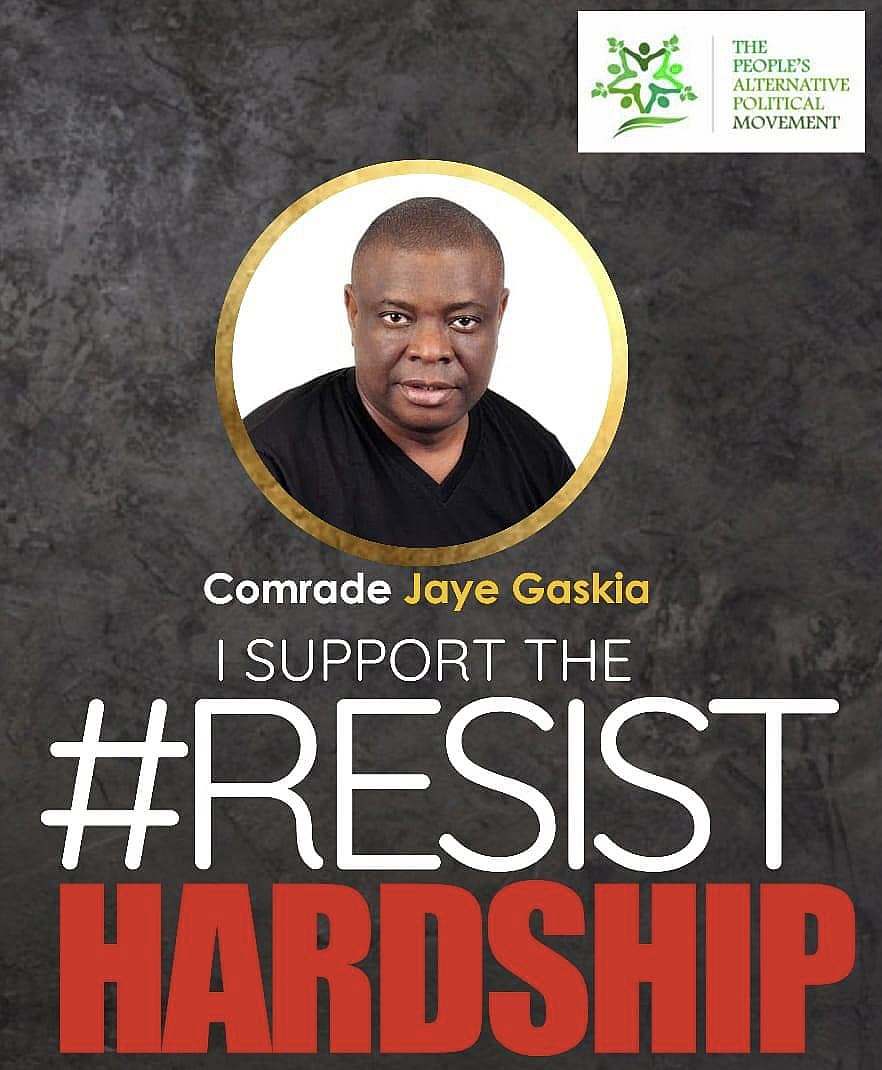 For the Nigerian left, scared by decades of debilitating sectarianism, left unity has become an elusive mantra, a feel-good slogan.
For the Nigerian left, scared by decades of debilitating sectarianism, left unity has become an elusive mantra, a feel-good slogan.
What is more, a section of this labour party supporting left rather than organising as internal opposition within the party became spokespeople and active defenders of the party, right or wrong, or worse still became captive and subordinate to the Obidient current on whose sail the labour party was simultaneously, as this was happening, the abandonment of the autonomous and Independent left agenda and program, constrained the ability of those left to carry on with the CAST Nigeria in the manner it was envisaged, and thus limited what it was able to achieve in this context.
There are obvious lessons to be learnt from this experience however.
One of this would be that perhaps the most urgent task of the moment is to rebuild a viable left and socialist organisation, of a new type, on the basis of individualconviction, membership and commitment. Only after such, and in the context of the emergence of such viable membership based and large left organisations, can the project of building left coalitions, towards achieving left unity be initiated, undertaken, and achieved.
The Obidient Current And The Election:
The transactional entrance of Peter Obi into the labour party on the eve of its contrived political bazaar of a presidential primary, enable the activation and energization of the Obidient Current, largely derived from the #EndSARS protest movement of October 2020. The major actors in the #Obidient Current were also active in, and derived their relative social media celebrity status from the previous #EndSARS protests. In this sense, we can say that the #EndSARS was the precursor of the #Obidient Current.
Just like the EndSARS before it is a largely middle class led youth current characterised by intense mass mobilisations primarily online and through the social media. For this reason, it also reflected the individualism of the middle class, in its promotion of individual stardom, in its disdain for organisation, in its disregard for discipline, and in its hostility towards the workers and the working class. It attempts to mask its hero worship of capitalism and the capitalist free market system, with a barely contained dismissiveness of socialism and ideology.
In its ahistorical nature, it is impervious to learning. Cocky, simplistic, intrepid, given to being self-absorbed, bereft of depth, and shallow minded, the stupendous scale of its ignorance is matched only by the humongous outrageousness of itsarrogance. It learned no lessons from the #EndSARS, and has not indicated any ability to learn any lessons from its disastrous mismanagement of the historic moment provided by the dynamics of the 2023 general elections.
This Obidient Current took control of the social media space, obliterated dissenting views, demonstrated blatant intolerance of any views or opinions other than theirs and drowned out any potential voices of reason. The Labour Party and its presidential candidate became beholden and captive to this Obidient Current, dragging the trade unions bureaucracy and the labour party supporting left down with them. Neither the labour bureaucracy nor the labour party supporting left could find their own voice within this current. They had no influence at all within, much less over the Obidient Current. The uncritical nature of the way the labour bureaucracy and the labour party supporting left, sought to take advantage of the groundswell that the Obidient Current presented, led them down the path of opportunism.
The Labour Party And The Elections: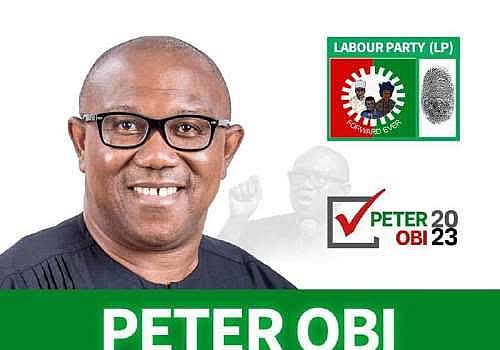 Why are we concerned with the Labour Party? Why not the All Progressives Congress [APC], the Peoples Democratic Party [PDP], the New Nigeria Peoples Party [NNPP], the All Progressives Grand Alliance [APGA], or even the Social Democratic Party [SDP], on any of the other parties that contested in the elections one may want to ask? The answer is simple. The Labour Party is the only that claim to be a party for workers, even if not a party of workers; and it is the only one in the midst, with historical ties to the labour movement, with respect to its founding and sponsorship at inception by the trade union Federations. However, as we have seen from the foregoing, even at foundation, the party was at best a aspirationally a party for workers, not a party of workers, and it has long since lost even this character as a party.
Why are we concerned with the Labour Party? Why not the All Progressives Congress [APC], the Peoples Democratic Party [PDP], the New Nigeria Peoples Party [NNPP], the All Progressives Grand Alliance [APGA], or even the Social Democratic Party [SDP], on any of the other parties that contested in the elections one may want to ask? The answer is simple. The Labour Party is the only that claim to be a party for workers, even if not a party of workers; and it is the only one in the midst, with historical ties to the labour movement, with respect to its founding and sponsorship at inception by the trade union Federations. However, as we have seen from the foregoing, even at foundation, the party was at best a aspirationally a party for workers, not a party of workers, and it has long since lost even this character as a party.
The Labour Party went into and fought the 2023 general elections as a party opportunistically fielding an array of candidates, with little or no connection to one another or to the labour party, other than they were each refugees forced out of their own political parties, and who had enough resources to buy and purchase the ticket of the labour party, in order to use the party as platform to contest the elections, and cash in on the groundswell created around the party by the Obidient current upon the grand, but no less transactional entrance of Peter Obi into the party. In this respect of party ticket buying, akin to the vote buying associated with party primaries and the general elections, the labour party was no different from the other parties.
What is more, the Labour party of the eventual four main contending parties for the presidency, was the only party whose fielded candidates were overwhelmingly not members of the party till a few hours to the political bazaars, characteristic of the so-called labour party primaries.
These candidates who bought the labour party tickets after purchasing forms, participating in, and losing out in the primaries processes of of their own parties, were never subjected to any scrutiny to determine the alignment of their goals with the party program, nor were they even legally properly sponsored by the Labour party for the elections, given that none of them were members of the party as at the time of the party’s submission of its membership register to INEC, 90 days prior to their party primary, and none of them were even granted waivers by properly constituted and appropriate organs of the labour party.
Each candidate came into the labour party with their own political structures, and organised their campaigns autonomously not only of each other, but also of the labour party bureaucracy and the labour bureaucracies of the two labour federations. At no time was there any sense of common programmatic purpose, common agenda, and coordination of messaging in the campaigns.
It is perhaps almost certain, that if Atiku had not insisted on contesting the PDP presidential primary, if he had thus not wittingly subverted the party consensus and instigated an internal crisis, Peter Obi would not have left the PDP, there would not have emerged the Obidient Current, at least not in the form that it emerged and evolved, and the Labour party would have remained as inconsequential in the 2023 general elections as it had been in previous elections.
The decisive phases in the capture and alteration of the political fate of the Labour party began with Atiku’s subversion of the PDP consensus, and crsytalised with the exit of Peter Obi from the PDP, and his clandestine entrance into the Labour Party.
In all of these however, and given the way things were unfolding within the Labour party, the labour party supporting left remained ominously silent. At least they did not openly speak up.
It begs the question of whether in the current situation, given the trajectory of the Labour Party, the the party is still redeemable and or salvageable. Can this party ever become a party of workers? Is there ever any chance that this party can be transformed into a proper workers party?
Results And Prospects:
Lessons have no doubt been learnt in the course of this engagement. These lessons need to be properly identified and mechanisms put in place to internalize them.
We were definitely right when we asserted that socialism was not on the agenda, and that a pro-massed agenda and program was neither on the ballot nor on the table in the 2023 general elections. All the parties and their candidates, including the labour party, and its presidential candidate pushed anti people, anti-worker, and blatantly and openly neoliberal programs and policy options.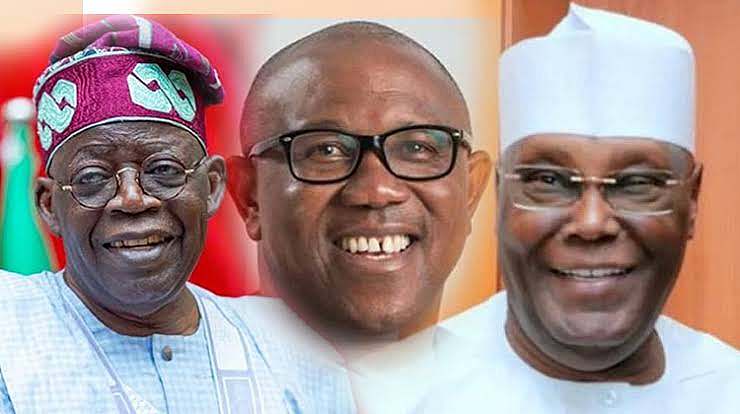 The labour party went into the election not as a worker’s party, which it is not, and has come out of the elections even much further away from being a party of workers now than at any time in the past. Workers are still alienated from the party, and are not welcomed in the party. The control of the party is now shared between and among a motley crowd of political jobbers of various sorts, and the labour bureaucracy.
The labour party went into the election not as a worker’s party, which it is not, and has come out of the elections even much further away from being a party of workers now than at any time in the past. Workers are still alienated from the party, and are not welcomed in the party. The control of the party is now shared between and among a motley crowd of political jobbers of various sorts, and the labour bureaucracy.
The left went into the election disorganized and scattered, and have not come out any better.
The project of building a mass workers party, with a socialist program, that is peopled by, owned by, and led by workers and the working people; and that has acquired the capacity for taking significant and decisive autonomous action, still stares us in the face. It is the most urgent task of the moment, and of the movement. Such mass political movement of the working people must organise intensely and massively among the workers, and it must be made up of and recruit deliberately and intentionally from amongst the working people. It must be workers party and movement not only in name, but in character, and by its membership and programs, and leadership.
A political movement that cannot field its own members for electoral contests, and that has to rely on borrowed and paying candidates, is not a political movement, nor is it ready to contest political elections, let alone take political power, and govern.
These are some of the most important lessons from our recent history.
•NB: Jaye Gaskia is a member of the CAST Nigeria Secretariat.




